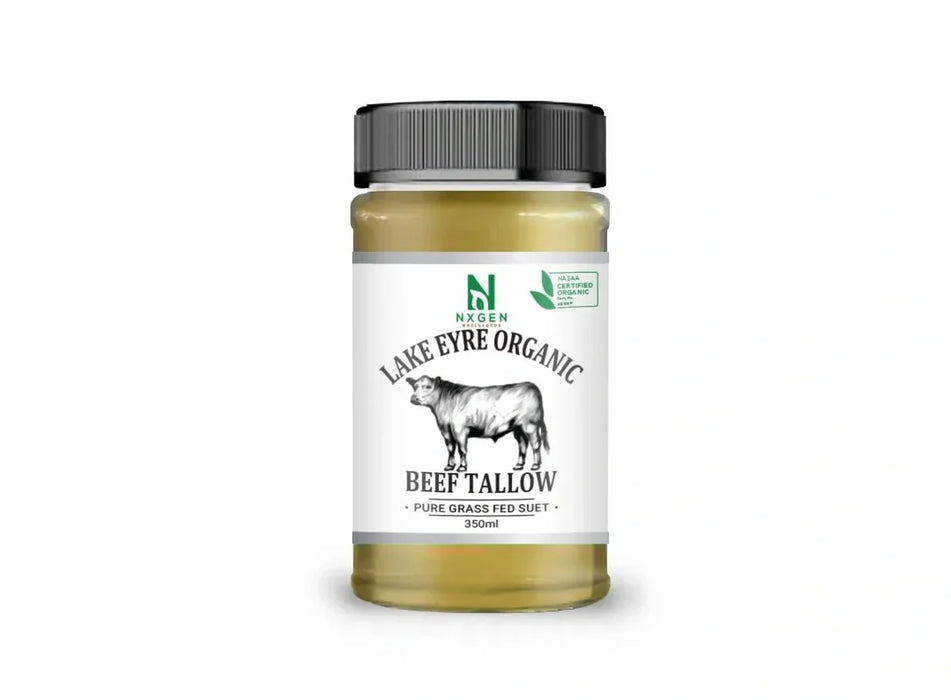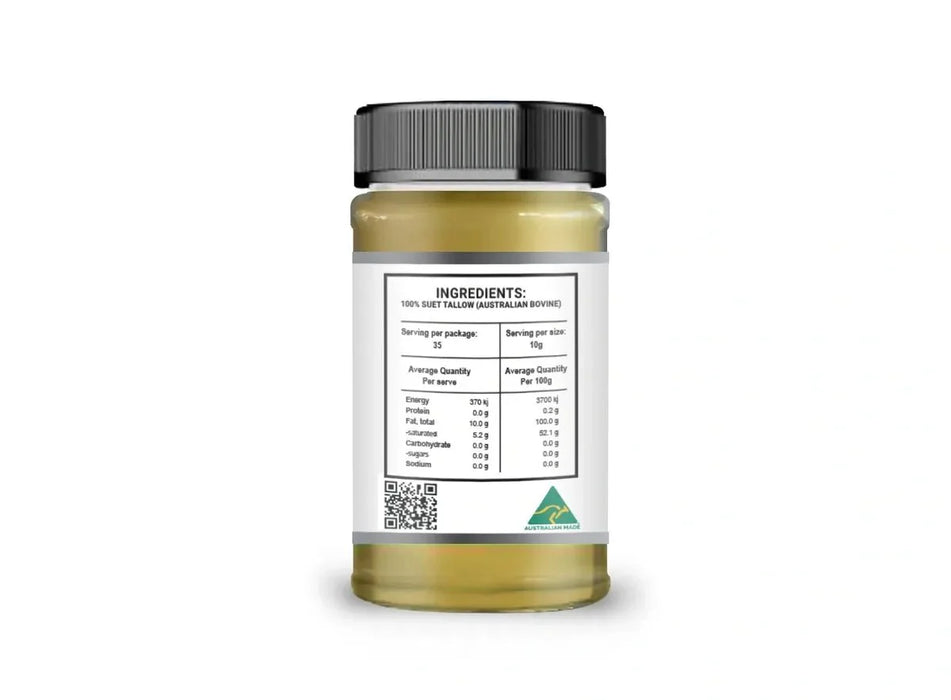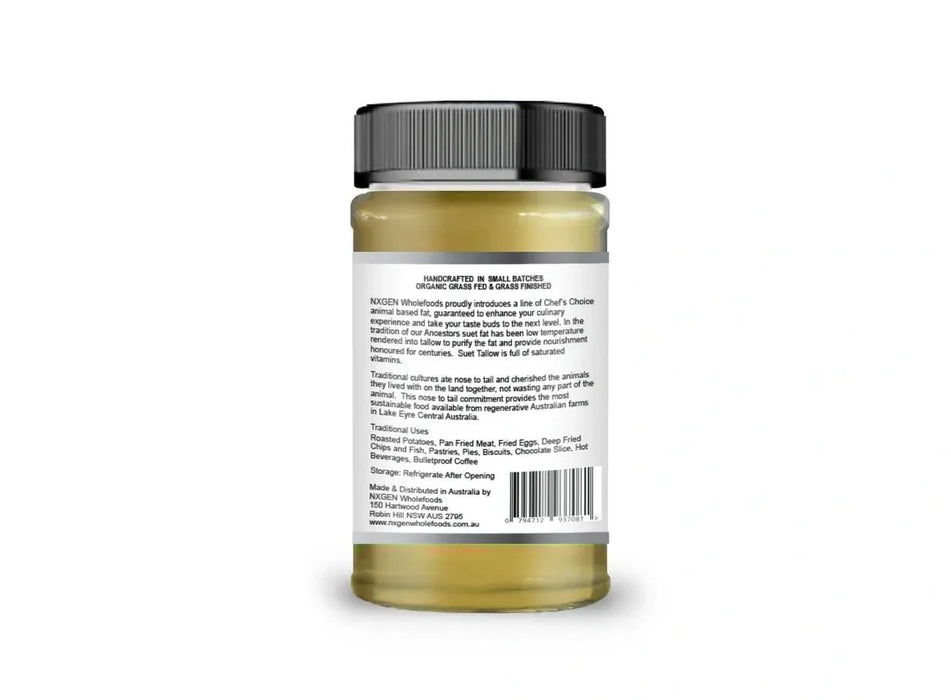
Lake Eyre Organic Beef Suet Tallow - 350ml
Organic Beef Tallow is a nourishing superfood that can be used to treat a leaky gut and relieve joint pain. NXGEN Wholefoods tallow is 100% organic, grass fed, paleo and GAPS friendly. Ethically farmed with the highest animal welfare standards. It is ultra rich in the same kinds of lipids that are found naturally in youthful, healthy looking skin. Grass fed tallow also contains fat-soluble Vitamins A, D, E & K. All intrinsically balanced by nature, with no further improvement or enrichment needed.
Use for cooking in place of olive oil to
> Improve insulin sensitivity and mitochondrial fat-burning
> Improve weight loss
> Healthy body composition
> Increase your energy
> Improve exercise performance
> Better mood
Important Information About Our Tallow
Tallow is a 100% natural product, which means its appearance, texture, consistency, and scent can vary depending on the season and the region where the fat is sourced. These natural variations are entirely normal and do not affect the product's quality or usability.
- Texture & Consistency: Some batches may be more oily due to the different melting temperatures of the various fatty acids in the tallow. Other times, you may notice a more homogenous, firmer texture.
- Colour: The colour can fluctuate based on the natural differences in the fat, depending on factors like the animal's diet and environment.
- Scent: Occasionally, tallow can have a "beefy" scent, which results from a higher amount of meat naturally attached to the fat during rendering.
These variations are a testament to the unprocessed, natural origins of our tallow and should not be seen as defects. Please note that we do not offer refunds for these natural differences.
We appreciate your understanding and your commitment to using sustainable, natural products. Thank you for supporting this environmentally-conscious choice!



